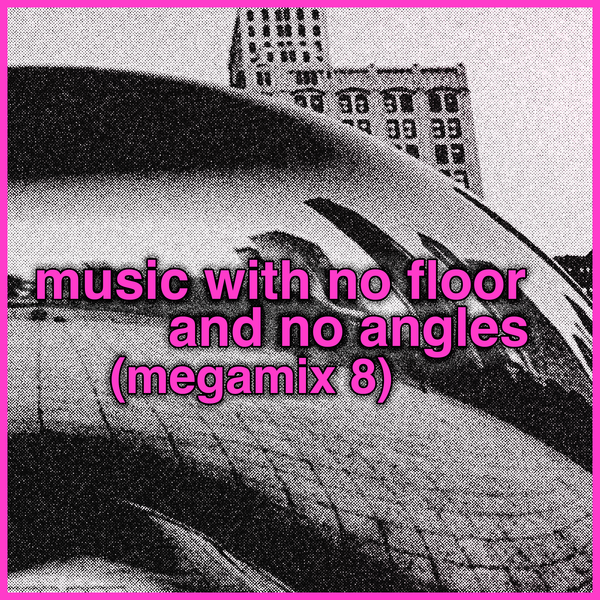Three Music Thingz with Lane

Bonjour, it's another rendition of Three Music Thingz, the blogseries where I ask musicians for three thingz that are essential to their music-making.
Today we have Lane! Lane are a trio based in Boston helmed by guitarist/vocalist Wes Kaplan, with Jolee Gordon (vocals) and Julian Fader (drums, vocals, production) at the other points of the ol' band triangle. Lane just put out their second album Receiver and it is fantastic: eight tracks of contorted and invigorating guitar-led rock music, as complex as it is...kind of chill?? Seems wild to describe such elaborate guitarsmithing as 'chill,' but every bit of nomadic noodling is counterbalanced by a certain prioritization of hook and delicateness of tone.

My favorite of the bunch is "Genius Of Love"—which of course I'm inclined to like by title alone—arriving as a mini-maze of knotty picking and intricate drumming, smoothed over with a soft psychedelic gloss...like a post-rock Kit Kat bar. But I'm also extremely into "Surfer Girl," whose dreamy harmonics pair nicely with a leisurely groove. I don't want to reduce Receiver to mere vacation aesthetics, it's way more than that, but I also keep thinking about it as "if Mission of Burma did a quick pit stop at Margaritaville before a show." Experimental, never abrasive, I get something new out of it every time I listen.
Wes from Lane sent over Three Music Thingz, which you should now read...
- Oblique Strategies
This is the deck of creative prompts published by Brian Eno and Peter Schmidt in 1975. Problem: you’re making “Heroes,” you’re on your sixtieth overdub, your mix is going nowhere, and you’re ready to throw the whole thing out. Solution: draw a card and consider “making a blank valuable and putting it in an exquisite frame.” Or simply, “Water.”
When they hit, the effect is nootropic. I personally use Oblique Strategies for songwriting rather than mixing. My tunes tend not to lend themselves to basic forms (not something I’m advertising as a virtue), so I’ll write two or three sections of my way into a song and have no idea where to go. I add a couple seconds, I take away three. A song’s worth of riffs are sacrificed in the name of This Needs a More Convincing Bridge. Once I’ve earned my right to declare myself totally out of ideas, I draw a card, which may be totally irrelevant, or inspire something totally irrelevant to its content, OR speak directly (as it were) to my needs. Example: there’s a moment on “Judy and Jackie” where everything comes to a halt, then comes back on a weird upbeat. I don’t remember what the prompt was, probably something like “use silence”—but a couple beats of rest was enough to make the song. - Workshopping with Anthony Madrid
Check out the poet Anthony Madrid. By a certain point in my career (about a third or so into the composition of Receiver), there isn’t a set of lyrics I haven’t run by him. I’ll send him a verse and he’ll rearrange a couple or words, or cross out a line he doesn’t like, with occasional instruction or commentary, but usually the -/+ is enough for me to extrapolate what’s working vs. not. He’s helped me begin to appreciate basic things like sound, rhyme etc., which I guess is like Slash helping you appreciate cowboy chords. Here’s a gem he served up that got left on the cutting room floor cuz the syllable count wasn’t right (in fairness he didn’t have the actual music as a reference):
light as a bird, light as a feather
a light at the heart of the mining disaster - W.A. Mathieu
Mathieu is a composer and music theorist who gave me a couple lessons over the phone pre-pandemic. I recommend his book Harmonic Experience to anyone, musician or non, who finds themself totally mystified by “Dorian scales” and that kinda thing. Unexpectedly, it was his songwriting advice that made the biggest impression. I was playing him demos off my first record, looking for Weird Scale approval, and he was like, that’s all fine but your songs are four riffs of A, four riffs of B, while riffs A and B have nothing to do with each other thematically. He says, don’t be so predictable. I’m like, doesn’t this disqualify 80% of rock music from being good songwriting. But anyone who’s been following along will see I have not been able to unhear this insight.
Thanks Wes! Listen to Receiver please. And check out Lane's link aggregation. And thanks for reading I Enjoy Music. If you like it, tell a friend.





